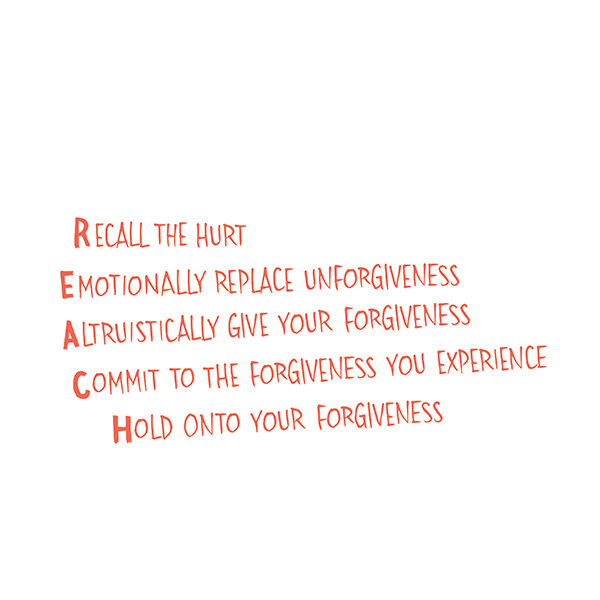Surprisingly, the Bible treats the heart as the place where we do our thinking—we think in our hearts, not our heads. For, “Out of the heart come evil thoughts” (Matthew 15:19)—those thoughts are not always noble. What else does the Bible have to say about the heart?
- “Mary kept all these things, pondering them in her heart” (Luke 2:51)
- “The word of God…[pierces] to…the thoughts and intentions of the heart” (Hebrews 4:12)
- “Out of the heart come evil thoughts” (Matthew 15:19)
In our culture we regard our ability to reason as one of the highest aspects of human personhood, but forget how often we employ that faculty in less-than-noble pursuits. The biblical Greek word for thinking actively, like when you’re thinking something through, is dianoia, and it often includes selfish fantasies, plotting, and scheming:
- “The imagination [dianoia] of man’s heart is evil from his youth” (Genesis 8:21)
- “He has scattered the proud in the imagination [dianoia] of their hearts” (Luke 1:51)
So if the heart is where humans do their thinking, where do they feel emotions? The strongest emotions, as well as the deepest thoughts, are said to arise from “the inward parts,” the bowels and kidneys, as we might refer to “gut feelings.” That sounds coarse in our culture, though; so modern English translations usually substitute something more polite, located higher up in the body.
- Psalm 16:7 in original Hebrew: “I will bless the Lord who has given me understanding; in the night also my kidneys instruct me”
- King James Version, 1611: “My reins also instruct me” (reins being an archaic term for “kidneys,” as in “renal function”)
- Revised Standard Version, 1952: “In the night also my heart instructs me”
- New American Standard Version, 1971: “My mind instructs me in the night”
Apparently, over the centuries, everything’s been rising. Maybe in a hundred years we’ll read, “My hat instructs me”!
But it’s not a matter of substituting “bowels and heart” for “heart and head,” for the Scriptures don’t share our view of emotion as an equal-and-opposite alternative to reason. Our assumption is that people tend toward one function or the other, and we deplore the waves of emotion that undermine reason, or the coldness of solitary reason that stifles the heart. But the Scriptures don’t view them as opposed or parallel faculties.
In the Scriptures, having emotions is not a function or action, parallel to dianoia thinking. A specific emotion, like anger, might prompt a biblical character toward an action, but the person wasn’t engaged in a distinct process of emoting at the time, as opposed to thinking. He just got angry, and acted it out in a particular way. He probably was thinking, actually. He was thinking about something that made him mad.
This makes sense when you think about it. Reason and emotion actually are not separate. When we feel an emotion, it is because of a thought we’re having—often enough, a completely logical thought. And we all know how our emotions subtly influence our reasoning. These are two aspects of a single process, not opposites or alternatives.
Here’s another difference. The Scriptures’ use of “heart” is much broader than ours today. The heart was seen as the center of a person’s entire being. It was the place inside where thoughts, emotions, memories, fantasies, will, and desires all bubble together as in a cauldron. (While the deepest thoughts and feelings are registered in the “inward parts,” the usual source of both is the heart.) The heart includes both good and bad elements; as Aleksandr Solzhenitsyn said, “The line dividing good and evil cuts through the heart of every human being.” The heart is the home of our inner self, and the place where Christ must rule.
You might well ask why this difference of viewpoint matters. It’s because, when we agree with the cultural assumption that human beings are composed of two opposite functions, reason and emotion, it damages our witness. If human beings don’t have anything but reason and emotion, there is no way God can communicate with us. All our claims about God can be ascribed to emotions. We often hear people say, “You can’t reach God with your mind, only with your heart.” But, as those terms are defined today, it means that any claim of contact with God has no rational basis and is merely emotional. Something like St. Paul’s conversion cannot be claimed as real in an objective, “true for everybody” sense. It’s real only in a subjective, “true for me” sense. Maybe he just had an emotional crisis and hallucinated the whole thing. No prophets heard the voice of God. Moses thought he saw a Burning Bush because of he was lonely and discouraged. When the whole population of the Hebrews drew near the smoke-shrouded mountain, and saw lightning, heard thunder and “the sound of the trumpet growing louder and louder” (Exodus 19:19), it was a case of mass wishful thinking.
When we agree with our culture that all experiences of God are solely emotional, it seriously limits our ability to speak the truth of Jesus Christ in the public square.
But the New Testament offers us a different understanding of the composition of a human being, and, as a result, a different understanding of human contact with God. I began to glean this after I became Eastern Orthodox, twenty years ago. When I started reading Eastern Christian writings, from the Middle East, Eastern Europe, and Slavic countries (reaching back to the first century), I had the feeling that something here was really different. It was hard to pin down just what it was. One thing I noticed was that a Greek word, nous (pronounced “noose”), kept popping up. It would appear just like that, un-translated and undefined. Apparently translators thought there was no accurate equivalent in English. It was a concept we just don’t have.
This was in the days before Google, so to figure out what it meant I kept writing down whatever I thought the definition was, as I read along. At one point I had six definitions. But eventually I grasped that it means the human faculty that understands, discerns, or comprehends.
This is something we do with our minds, all right—when it appears in the New Testament, it’s usually translated “mind.” But it’s not active dianoia thinking, like thinking through a problem. It’s the receptive faculty of the mind.
You can picture the human mind as having two gears, forward and reverse. Forward, dianoia, is when we’re thinking something through, actively reasoning. Reverse, nous, is when we are grasping or comprehending something. This is our faculty of discernment, comprehension, understanding, perception, awareness. It’s how God can make contact with his people, can convey something to them directly, and it has nothing to do with their emotions.
Forty years ago I had a miraculous conversion to Christ, kind of like St. Paul’s. I was a new college grad, hitchhiking around Europe, and at that time calling myself a Hindu. But when I was touring a historic church and stood looking at a statue of Christ, I suddenly heard a voice speaking to me—not with my ears, but interiorly. It spoke with such authority that doubt was impossible. What the voice said was, “I am your life.”
When I tried to describe this to people afterward, the best I could describe it was, “It was like there was a little radio in my heart that I never knew was there. Suddenly it switched on and I could hear a voice.” When I met the word nous in Eastern Christian writings, at last I had a name for it; the nous is that “little radio.” And every one of us has one. We are made that way. Because God wants to be in communion with his people.
Let’s look at how the word is used in the New Testament. When Christ appeared to his apostles, after the Resurrection,
- “He opened their nous to understand the Scriptures” (Luke 24:45)
He didn’t render the apostles better at thinking logically about the Scriptures, but opened their understanding. Suddenly they could see his Incarnation, Crucifixion, and Resurrection foretold throughout the Old Testament. St. Paul says,
- Christians “have the nous of Christ” (1 Corinthians 2:16)
- “Be renewed in the spirit of your nous” (Ephesians 4:23)
- “The peace of God which passes all understanding” is actually “The peace of God which overflows the nous” (Philippians 4:7)
- “Be transformed by the renewal of your nous” (Romans 12:2)
The nous is not a special spiritual faculty; it is how we perceive everything. It is how the mind receives and assimilates information. If you open the door and it’s raining, your senses of sight, smell, hearing, and touch all transmit their perceptions to the “central office,” the nous. You then process that incoming information and discern that it is raining.
This first-hand, direct experience of something, which we register by means of the nous, precedes thoughts and feelings. To put that another way, after we perceive something we may well have rational thoughts and feelings about it, but the actual perception came first. After you realize it’s raining, you may have some rational thoughts (“I’d better take an umbrella”) or feel some emotions (“I get sad when it rains”). But both came after that primary perception of rain. The perception itself was not due to your thoughts or feelings, but was derived from objectively real phenomena. If God communicates with us, we are likely to have a number of thoughts and emotions afterward! But that doesn’t render the experience itself unreal.
As if the heart-mind confusion weren’t enough, we also have a linguistic tangle because, in English, we use the word “feelings” to mean two different things. We can “get a feeling” and perceive something, or sense something. Maybe we have a “gut feeling.” That would be “feeling” in the sense of the nous. The old Star Wars hero Luke Skywalker had to learn to “feel” the Force; he had to learn how to perceive and tune into something that, in the movie’s world, was objectively real.
But, unfortunately, we use the same word “feelings” when we mean emotional reactions—hurt feelings or sad feelings. Star Wars villain Darth Vader should have resisted his vengeful feelings. For Luke “feelings” are perceptions, and for Darth “feelings” are overwhelming emotions. Same word, different meanings; no wonder we’re confused.
But if everyone has this capacity to hear God’s voice, why don’t we? Because the nous is fallen. Just like everything else in Creation. It perceives inaccurately. How many of the conflicts between people are caused by simply not understanding each other accurately—misreading what others say and do. Your damaged, darkened nous might tell you that someone is looking at you funny, when they’re not looking at you at all. The devil makes a playground of this. St. Paul says of nonbelievers,
- “Their very nous … is corrupted” (Titus 1:15)
- “[They live] in the futility of their nous” (Ephesians 4:17)
The nous doesn’t much want to hear God’s voice. It would rather keep itself distracted with a ceaseless stream of incoming sensory data—images, sounds, physical experiences, favorite foods, and so on. When people say that you need silence to hear God’s voice, it doesn’t mean that you should try to be vacant and empty (which would be a spiritually dangerous, actually). But we need quiet at times of prayer because all the busy-work our nous wants to chew over keeps it filled to capacity, and not sensitive enough to register the “still, small voice” (1 Kings 19:12). If you were at a noisy party and someone asked you a very important question, you would want get away someplace quiet to think about it. That’s why we need silence, when we pray. We’re trying to listen, to learn how to listen.
I didn’t know all this when I joined the Eastern Church. I thought it was just a matter of changing to a different denomination. But to my surprise, the Eastern Christian tradition turned out to be not merely an ecclesiastical institution or set of theological doctrines, but an active science or program of inner healing. In the Christian East, we are seen as sick with sin, rather than merely guilty of it; sin pervades us and our world. Like air pollution, it damages everyone, including the innocent, and gives power to the evil one. Sin is death.
So there’s a sense of urgency about overcoming this creeping toxin. We don’t need only to be forgiven for our sins, but also to stop sinning and stop contributing to the misery of the world. Christ came to take away our sins (1 John 3:5)—not just the penalty for our sins, but the sins themselves. Sin is infection, not infraction. It matters, when we resist it.
Eastern Christianity is a method or program of strength-training, so we can gain power over our compulsions to sin, and continuously grow in union with Christ. It shows us how to fast, pray, and love others such that the damage of sin begins to be healed, and the light of Christ begins to spread. Though I had no idea that’s what I was getting into when I converted, it turned out to be what I had sought all my Christian life.
Now most of my work is aimed at helping Christians of all denominations understand and implement this “science” of transformation in their own lives. A significant part is recognizing that our “head-heart” division is not Biblical or true, and learning that the nous exists and needs healing. This alternative understanding of the makeup of the human person restores to us the possibility of authentic communion with God. That’s what the world is longing for.



